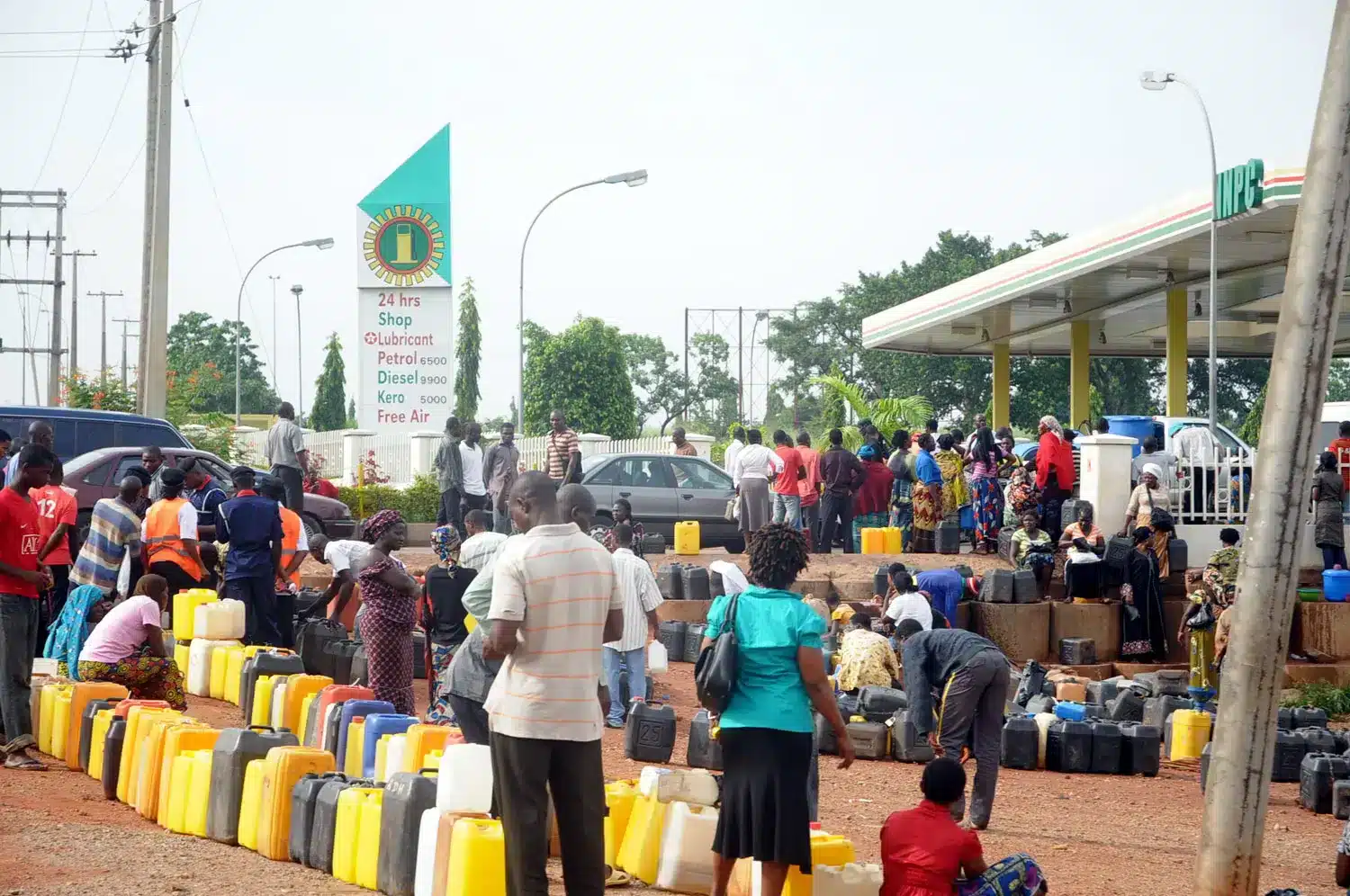BY SAM OTUONYE
As Nigerians continue to groan over long fuel queues in major cities in the country since last week amid the assurances of Nigerian National Petroleum Company Limited and it’s stakeholders to tackle the challenge in the coming days, oil and gas experts have proffered potential solutions, asking the federal government to declare war on scarcity and create a duopoly on fuel importation.
Ademola Adigun, an oil and gas experts has criticised the NNPC’s current approach of petroleum importation and supply saying that it is unsustainable and called for a better strategic planning.
He said in a recent media interview: “Because NNPC only imports for short periods, as soon as one disruption happens, everything collapses.”
Questioning the relevance of the NNPC’s monopoly as the sole importers of petroleum in a diversified economy, Adigun pointed out the role of policy in the current situation.
“NNPC is a victim of policy because, under the Petroleum Industry Act (PIA) law that was passed, they are a commercial entity. They are the only ones bringing petrol for the past seven years into the country. Since deregulation, anybody can bring diesel in.”
He explained the lack of interest from other companies in trying to import fuel by pointing to economic disincentives. “The main issue is the pricing structure. No one is willing to invest in a venture where the selling price is below the cost price,” he explained.
He also stressed the need for a shift from a monopoly to at least a duopoly in the fuel importation sector.
“We need to start asking when we will move from Monopoly to at least duopoly. Because of the monopoly, we are at the mercy of NNPC. I believe that anybody under the PIA should be allowed to import petroleum. This is one of the failures of regulation, so the culprit in the session is the policy people.”
He stated that deregulation of NNPC’s fuel importation monopoly and price stability are the keys to solving Nigeria’s fuel scarcity issues.
However, he concurred with the claims of the Nigerian National Petroleum Corporation (NNPC) that logistics problems were to blame for the scarcity, but expanded on the complexities involved. “The NNPC is actually correct, that’s actually the problem. While it sounds suspicious, it’s the reality,” he stated.
Expressing his dissatisfaction with the degradation of the pipeline infrastructures which are supposed to help in the distribution of fuel due to various factors, said, “Our lack of maintenance, vandalism, and poor culture have destroyed the whole pipeline. Of the 1,530 kilometres of pipelines built, I don’t think more than 200 kilometres are working currently, despite the annual announcements of millions to be spent on pipelines and other repairs. This is a big challenge.”
Similarly, Billy Gillis-Harry, the President of the Petroleum Products Retail Outlets Owners Association, (PETROAN) has said the Nigerian government should set up a ‘war council’ to tackle the continued occurrence of fuel scarcity in the country.
Gillis-Harry disclosed this in an interview with a news media on the recurrence of fuel queues in Abuja and surrounding states.
He described the fuel queue experienced by Nigerians as a war situation in dire need of an emergency solution.
According to him, the establishment of a war council will go a long way in solving the problem of fuel queues in Nigeria.
“We have talked about the challenges facing the sector, especially in Abuja and Lagos State. It is a situation that comes up and cripples us as usual without clear knowledge of what is going to happen.
“The problem is a supply glitch.
What we, as PETROAN advise is simple: “We need to create a war council to tackle the challenge. Nigeria needs to look into the situation and proffer solutions. Our solution is to always have a war council. For me, anytime there is a fuel queue, it is a war situation. People are fighting and querying, so we must have a council to defend the situation. Their defenses are supposed to be planned for and executed efficiently,” he stated.
He added: “The council will go a long way in solving the challenge of fuel scarcity because everybody will be working with data and knowledge of happenings within the sector.”
Meanwhile, Nigeria National Petroleum Company Limited (NNPC Ltd) in a press statement, Monday, noted that the fuel queues in the FCT and other parts of the country was primarily due to disruption of ship-to-ship (STS) transfer of PMS between Mother Vessels and Daughter Vessels resulting from recent thunderstorms, and the consequential flooding of trucking routes which constrained movement of PMS to Abuja from coastal corridor.
The statement said: “The NNPC Ltd wishes to state that the fuel queues seen in the FCT and some parts of the country, were as a result of disruption of ship-to-ship (STS) transfer of Premium Motor Spirit (PMS), also known as petrol, between Mother Vessels and Daughter Vessels resulting from recent thunderstorm.
“The adverse weather condition has also affected berthing at jetties, truck load-outs and transportation of products to filling stations, causing a disruption in station supply logistics.”
The statement further stated that due to flammability of petroleum products and in compliance with the Nigerian Meteorological Agency (NIMET) regulations, it was impossible to load petrol during rainstorms and lightning adding that adherence to these regulations is mandatory as any deviation could pose severe danger to the trucks, filling stations and human lives.
“Similarly, the development was compounded by consequential flooding of truck routes which has constrained movement of PMS from the coastal corridors to the Federal Capital, Abuja.
“The NNPC Ltd is working with relevant stakeholders to resolve the logistics challenges and restore seamless supply of petrol to affected areas.
“Already, loading has commenced in areas where these challenges have subsided, and we are hoping the situation will continue to improve in the coming days and full normalcy will be restored.
“The NNPC also calls on motorists to avoid panic buying and hoarding of petroleum products.”
